

Monique GoyensDirector General

Örjan BrinkmanPresident
The core of the EU, its Single Market, would not be much of a ‘market’ if consumers felt disinclined to shop, travel and invest. Which is why consumer groups approach the EU from the question: Has it benefitted our daily lives? And as we released our policy priorities for the next generation of MEPs our verdict is: well, yes, it has.
For example, the EU ensures food sold to consumers is safe by requiring strict hygiene standards from farm to fork. An EU rapid alert system enables national authorities to be readily informed about dangerous products on the market. The bloc is tackling antimicrobial resistance – at least 33,000 Europeans die from infections caused by resistant bacteria every year – by limiting the misuse and overuse of antibiotics in farm animals. And EU ecodesign rules save us on average €454 each year by making households appliances, such as washing machines, more energy efficient.
Could EU policy work better for consumers? Of course! And this is why our network of 43 consumer groups works relentlessly to bring people’s concerns and solutions to the attention of decision makers. In 2018, we unveiled the many misleading tricks used by food manufacturers on labels. We took up the fight against ‘no show’ clauses in airline tickets. We filed complaints against Google for breaching the GDPR with how it tracks its users’ locations. We discussed how competition enforcement can mitigate excessive drug prices. We illustrated how consumers can better participate in renewable energy generation. And we launched a campaign to halt the provision of bad financial advice to consumers. All of these challenges, and many more, will surely reverberate for years to come.
And yet, let us not forget that the greatest challenge is not a political but an environmental one – at least at its origin. Droughts, forest fires and floods are expected to intensify due to global climate change. And the fallout goes far beyond environmental policy. At the initiative of Portuguese consumer group DECO, our network met in October to explore the challenge of climate change for European consumers. We explored the effect of extreme weather events upon insurance policies, the public enforcement of air pollution emissions, food sustainability, and how people can seek redress if an environmental disaster compromises their health.
Seeing as both consumer and environmental legislation is heavily designed at the EU level, our work in the coming period is clearly cut out for us.
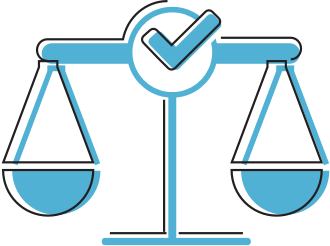
Antimicrobial resistance is one of today’s biggest global health threats. EU consumer groups have long advocated for an end to the routine preventive use of antibiotics in farm animals. Thanks to a new EU law adopted in June, vital antibiotics will largely be reserved for treating infections in people. In practice, this means that a) the use of antimicrobials in healthy animals will be allowed solely on an exceptional basis; b) a list will be drawn up of antimicrobials to be reserved for human treatment; and c) third-country producers exporting animal products to the EU must respect this law. The law will enter fully into effect in 2022.
In 2018, the EU worked on new CO2 emissions targets for 2030 for the car industry. In December, a 37.5% reduction with 2021 as the base year was agreed upon. CO2 targets matter to consumers, as emissions are directly related to a car's fuel economy. Reduced emissions will not only result in savings for people but will benefit the environment and public health. The targets should also push car manufacturers to offer more low emission models in their showrooms. This is the only way that consumers can make meaningful choices about whether an electric, hybrid or more fuel-efficient conventional car is the best option for their personal needs. BEUC built support for stronger reduction targets by organising a lunch debate in the European Parliament together with MEP Miriam Dalli, the Parliament rapporteur.
The revised Electricity Market Directive, agreed in December, will improve the rights and protection of consumers in electricity markets as of 31 December 2020. It will become easier and faster for consumers to switch energy providers (within 24 hours), as well as to upload energy they have produced to the grid. It will also be mandatory for energy providers to sign up to a dispute resolution scheme, ensuring that disputes between consumers and providers go through an arbitration process before any possible legal action. These rules will come in as the energy market undergoes a profound transformation, with a growth in consumer-generated electricity, and smart meters and services like dynamic pricing becoming ubiquitous.
The reform of telecoms markets to be implemented in December 2020 should make them work better for consumers. Current abusive costs of intra-EU calls will be tackled with lower prices for consumers calling from their home countries to other EU countries (this will already enter into force in 2019). Consumer rights will also be improved with the possibility for people to end their telecoms contracts early without incurring additional termination costs. National regulators can also take measures to intervene and maintain a healthy level of competition. This should prevent a small group of players from taking control of the market.
In June, EU institutions decided on the bloc’s renewable energy policy up to 2030. Part of this new policy is that households producing electricity using solar panels can no longer be barred from selling their electricity to the grid, and must receive at least the market price for it. Contact points will also be created to advise and support people interested in installing solar panels, a major barrier until now because of the often complicated procedures in place. The EU also agreed to remove all charges on electricity produced by households and consumed on premise, meaning that ’taxes on the sun’ (such as have been the case in Spain) will be impossible.
A ban on ‘geo-blocking’ was agreed on in February and came into effect in December. This prevents e-commerce merchants from blocking consumers from other EU countries who wish to purchase items and services on their websites. Consumers are now able to shop online across the EU, taking advantage of the wider choice and best deals regardless of where they are.
On 12 December, the General Court in Luxembourg ruled in favour of the European Commission and BEUC. It dismissed the appeal by Canal Plus of the European Commission’s decision to accept Paramount’s commitments in the cross-border pay-TV antitrust case. Paramount agreed to lift all geo-blocking clauses from their contracts with European broadcasters. This is a major success for BEUC, as such contractual clauses are a big barrier for consumers wanting to access audio-visual services across borders.
A revision of the Regulation on cross-border payments was agreed upon in December 2018 and will enter into force in December 2019. Consumers have been paying high fees for such transactions, and this revised law will bring fees for cross-border transactions in line with costs for equivalent transactions inside non-eurozone countries. For example, a Croatian consumer who transfers euros to Italy will be charged an amount equivalent to the fee for a transfer in kuna made within Croatia. As most cross-border transactions in non-euro area EU Member States take place in euros, this is a welcome change and could mean huge savings for consumers. Nevertheless, as bank accounts in local currencies are not regulated, banks are still able to take conversion fees.

Based on the research of 10 BEUC members, we showcased many misleading tricks that food makers commonly use on labels across the EU. Our report Food Labels: Tricks of the Trade highlights three practices that sugarcoat the actual quality of foods and drinks: 1) Industrial products being labelled ‘traditional’ or ‘artisanal’; 2) Drinks and dairy products displaying fruit images but containing little or no actual fruit; 3) Breads, biscuits, pasta and so forth labelled as ‘whole grain’ but containing barely any fibre. The problem mainly stems from the lack of EU rules defining in which cases manufacturers can use such terms. BEUC has set out recommendations for EU institutions for how to make food labels more honest. Our report resulted in a high number of media interviews and subsequent press coverage.
More and more European consumers are contemplating the switch to an electric car. In 2016, BEUC showed that by 2024, the average four-year cost of running an electric vehicle in the EU should match the cost of operating a petrol car. Yet as driving habits, preferences and legal systems differ across Europe, consumer groups wondered whether national parameters would affect the timing of electric cars ‘breaking even’ with fossil fuel cars. To find out, eight consumer groups conducted similar studies in Belgium, Bulgaria, France, Italy, Lithuania, Portugal, Slovenia and Spain. Their research underlines that electric cars have become increasingly competitive, with lower maintenance and fuel costs playing a huge role. At the same time, the research also highlights factors – such as the need for easy charging – that are essential in making electric cars a convenient option for Europeans.
In a period when consumers are increasingly encouraged to turn to financial markets for their pensions or for investments, we launched a campaign to improve the quality of the advice people receive on financial issues. Although most people rely on this advice when taking out mortgages or arranging pensions, investment and insurance products, the quality of the advice they receive is often not sufficiently trustworthy. Our website The Price of Bad Advice provides a snapshot of the major mis-selling scandals consumers have fallen victim to over the past two decades across Europe. We are calling for a fundamental revision of the way financial advice is given to consumers, including a ban on sales incentives that fuel the mis-selling of complex financial products.
The ‘Claudette meets GDPR’ project, which uses artificial intelligence (AI) for enforcement activities, was carried by BEUC together with the European University Institute. A research team analysed the privacy policies of 14 popular online companies by training 'Claudette', an automated evaluator. Ultimately, it is hoped that this AI tool will be able to automatically scan companies’ privacy policies and detect clauses that potentially fail to meet General Data Protection Regulation (GDPR) requirements. Initial research suggested that none of the policies of the biggest online services that were analysed fully met GDPR requirements one month after its entry into force.
Scandals like Dieselgate have shown just how vulnerable consumers are when they suffer damages and a company refuses to pay compensation. And that is why it is important for consumers to be able to go to court together to file compensation claims. In order to support a draft Commission law to this end, we started a campaign to gather MEP support for an EU-wide collective redress system. We made a cut-out of Lady Justice, which symbolically calls for the right of consumers to use collective redress, and we asked MEPs from the legal (JURI) and internal market (IMCO) committees to stand with her for a photo.
Based on research by BEUC’s Norwegian member Forbrukerrådet, seven consumer groups referred Google to their respective national authorities for breaching the General Data Protection Regulation (GDPR) in relation to how the company tracks its users’ locations. The report shows that Google collects users’ location data notably through the features ‘location history’ and ’web & app activity’, which are integrated into all Google user accounts. The company uses various tricks and practices to ensure that users have these features enabled, and does not give them straightforward information about what this effectively entails.
A ‘no-show’ clause prevents passengers from using the return leg of an airline ticket, or the remainder of an itinerary, if for whatever reason they didn’t take the first flight. Airlines that use this clause refuse boarding to the passenger and either require the purchase of a new ticket or the payment of a fine in order to make use of the original ticket. Consumer groups see this clause, which is used by a multitude of airlines in the EU, as an unfair practice that should be banned. This is why we sent letters to the European Commission, as well as to the public authorities responsible for consumer protection at national level (the Consumer Protection Cooperation network), urging them to open an investigation into the ‘no-show’ clause.
Droughts, forest fires, floods – these environmental problems and catastrophes have traditionally been the domain of environmental policy. Nowadays however, a broader interpretation that includes the concept of ‘environmental justice’ is often heard. BEUC, together with Portuguese consumer group DECO, explored the unequal impact of environmental hazards on different groups of consumers at a conference in Porto in October. Attendees addressed weather events and insurance policies, environmental health and redress mechanisms, the public enforcement of air pollutant emissions, safe food and the risk of exclusion.

We co-organised a debate on ‘Dynamic currency conversion: valuable service or deceptive business model?’ with the Centre for European Policy Studies (CEPS) in January. Current practice presents consumers with a dilemma: is it better to pay or withdraw money in their home currency or in the local currency? Most people logically opt to pay in the currency they’re used to, but this is actually a scam as they end up paying more. This practice is detrimental to consumers, and the event was part of our advocacy to change it. The debate attracted some 100 participants, and featured speakers from the European Commission, the financial industry and user representatives.
To illustrate how consumers can better participate in the generation of renewables, Belgium’s Test Achats/Test Aankoop and BEUC organised a debate in the European Parliament in January. The event drew a full house, with attendees from the European Parliament, the European Commission, the media, industry and NGOs. In May, to highlight the European Parliament’s position in the reform, Spain’s OCU Ediciones and BEUC organised an event entitled ‘Self-consumption, a right, a necessity’ in Madrid. The keynote speaker was José Blanco López, Parliament rapporteur for the Renewable Energy Directive. The event gathered industry, think tanks and NGOs, as well as consumers who practice or want to get involved in renewable energy generation.
BEUC and the Transatlantic Consumer Dialogue (TACD) – a forum of EU and US consumer groups – organised a conference called ‘Competition: All Eyes on Big Data and Big Pharma’ in June. Representatives, including competition authorities, academics, practitioners and stakeholders from the US and EU, gathered to discuss the latest developments in competition law enforcement in two important areas for consumers: privacy protection in digital markets and access to affordable medicines.
BEUC and TACD also organised an event entitled ‘The financial crisis 10 years later: lessons (un)learned’. The panel discussions brought together prominent policy-makers, regulators, financial industry representatives and consumer advocates. US Federal Trade Commissioner Rohit Chopra gave a keynote speech at the conference.
Our ‘Game Over’ campaign and recommendations were highlighted at the ‘Healthy future of Europe: Healthy nutrition for children’ conference hosted in February by the Bulgarian Presidency of the EU Council. This was later reflected in the Council’s conclusions.
In May, we were invited to present our action on the use of cartoon characters in advertising to children at a meeting of the World Health Organisation (WHO) European Action Network on Reducing Marketing Pressure on Children.
In December, BEUC organised a symposium on competition entitled ‘Bridge over troubled water – Digital competition in a Trans-Atlantic Dialogue’. The symposium brought together around 30 academics, representatives of enforcement authorities and civil society advocates from the EU and the US. Attendees described, analysed and compared the approaches of EU and US enforcement authorities towards digital markets, with the aim of identifying differences and shared approaches for future action to better protect consumers through effective competition.
On 17 December, the EU’s top court allowed BEUC to intervene in the appeal by Google against the Commission’s decision in the antitrust Google shopping case (in which it fined Google €2.4 billion.) Despite Google's opposition to BEUC’s intervention, the Court indicated that BEUC had enough “legitimate interest” to intervene in this case.
Many people struggle to get the medicines they need. High costs and drug shortages affect European patients – and are a huge strain on people’s private finances and the public purse. What is more, an increasing number of the new medicines sold at high prices do not offer increased benefits compared to those already on the market. BEUC, the Permanent Representation of Portugal to the EU, and the Portuguese medicines agency hosted a conference on ‘Healthier Solutions for Access to Medicines’ in October. Attendees discussed the role of national and EU public subsidies for research & development, how health technology can become truly innovative and effective, and how competition enforcement can mitigate excessive drug prices. Speakers came from academia, our member organisations, EU institutions and industry.
On 20 November, Arbeiterkammer and BEUC co-organised a well-attended conference about the European Commission proposal on representative actions (including collective redress). Staff from a number of Permanent Representations attended the event and heard a fascinating and impassioned debate between the two sides of the spectrum – those fighting for better access to justice and those trying to limit the reach of a collective redress tool at EU level.

At the end of 2018, the Consumer Law Ready project – managed by BEUC in consortium with Eurochambres and SME United – counted 778 local trainers, exceeding our target of 560. Consumer Law Ready is an EU-wide consumer law training programme for SMEs, developed by the EU to bring companies up to speed on important aspects of EU consumer law. Specialist training empowers them with the know-how to deal with customer complaints, avoid costly litigation and improve overall customer service. This results in increased trust in their businesses. To maximise outreach to companies, the pilot project has now been extended until the end of 2019.
BEUC was able to train 42 representatives from ministries and consumer organisations as well as ombudsman and regulators from the Balkans thanks to a new project supported by GIZ (the German agency for international cooperation). The trainings helped participants to understand a) how to handle collective redress; b) collective redress through injunctions; and c) best practices for collective redress and Alternative Dispute Resolution (ADR).

BEUC was quoted over 7,000 times last year in media across Europe and beyond, including major outlets such as EURACTIV, Politico, Les Echos, Handelsblatt, Reuters and Deutsche Welle.
We received more than 400 general press requests and were interviewed over 70 times.
BEUC and various national consumer groups published 11 blogs covering our policy priorities.
Our new Price of Bad Advice website provides a snapshot of the major mis-selling scandals consumers have fallen victim to in the past two decades across Europe.
We posted 885 messages on Twitter, and we reached more than 9,900 Twitter followers and 1,800 LinkedIn subscribers.
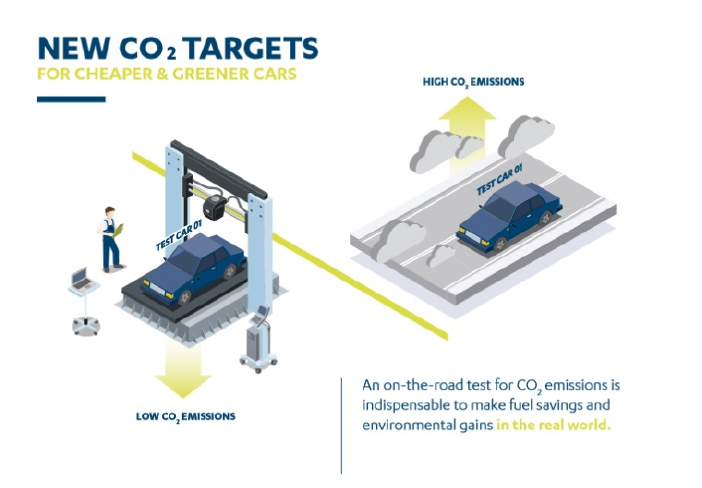
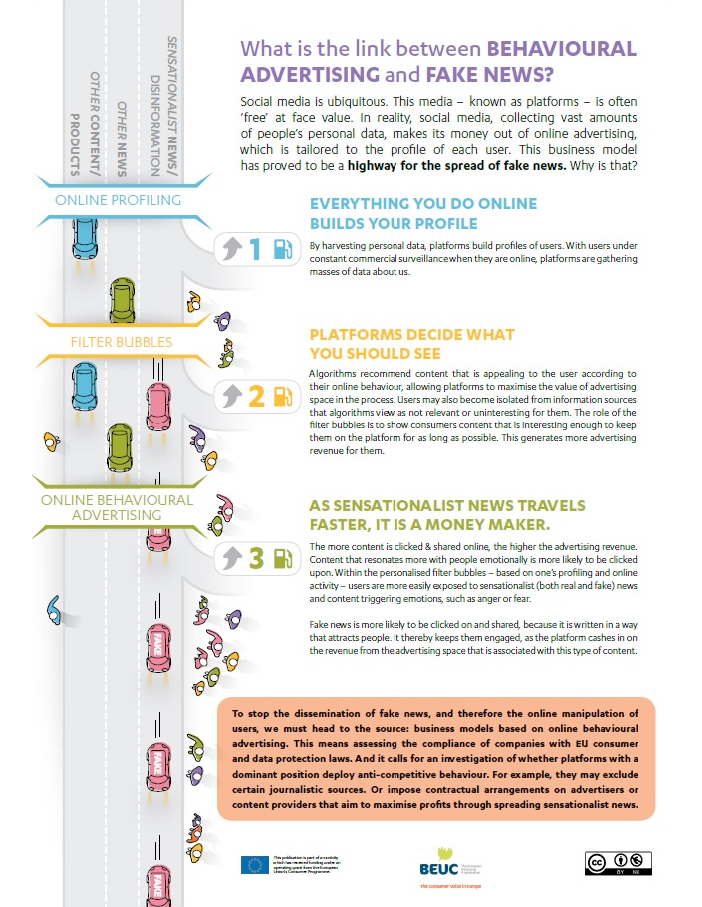
We put forward five priorities that we urged the newly-elected European legislators in 2019 to focus on.
We believe that by making the EU a champion of consumer rights, future Members of the European Parliament will be building better relationships with people across the EU.
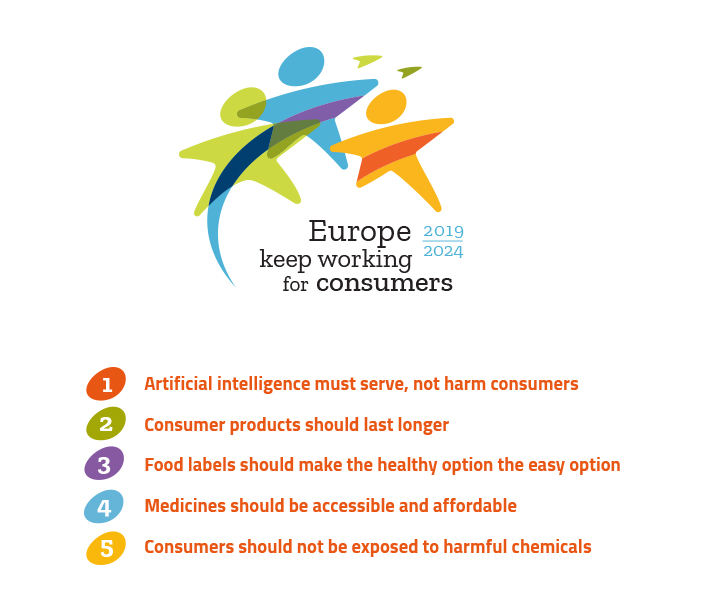
We hosted a reception on 28 November where we launched these activities and unveiled our priorities for the European Parliament elections. The event brought together our member organisations, representatives of EU institutions and other stakeholders. MEP Sophie in ‘t Veld gave a keynote speech in which she spoke about the role of consumer organisations in setting the EU policy-making agenda.

It is our policy to seek funding in priority areas that are identified by our members as important for consumers. This funding can be either unrestricted (to support our core work) or tied to a specific project or programme. All potential funders are carefully vetted through our due diligence process to ensure that they align with our goals and do not threaten our integrity and independence.
Our income in 2018 was 5,474,807 EUR. This includes:
| Resources 2018 | (in euros) | Expenditure 2018 | (in euros) |
|---|---|---|---|
| Membership Fees | 1,989,250 | Staff costs | 3,034,153 |
| EU Operating grant | 1,641,750 | Administrative costs | 538,856 |
| EU-funded projects | 1,047,271 | Activities | 831,565 |
| Private resources | 705,961 | EU-funded projects | 908,770 |
| Other resources | 90,574 | ||
| Total resources | 5,474,807 | Total expenditure | 5,313,343 |
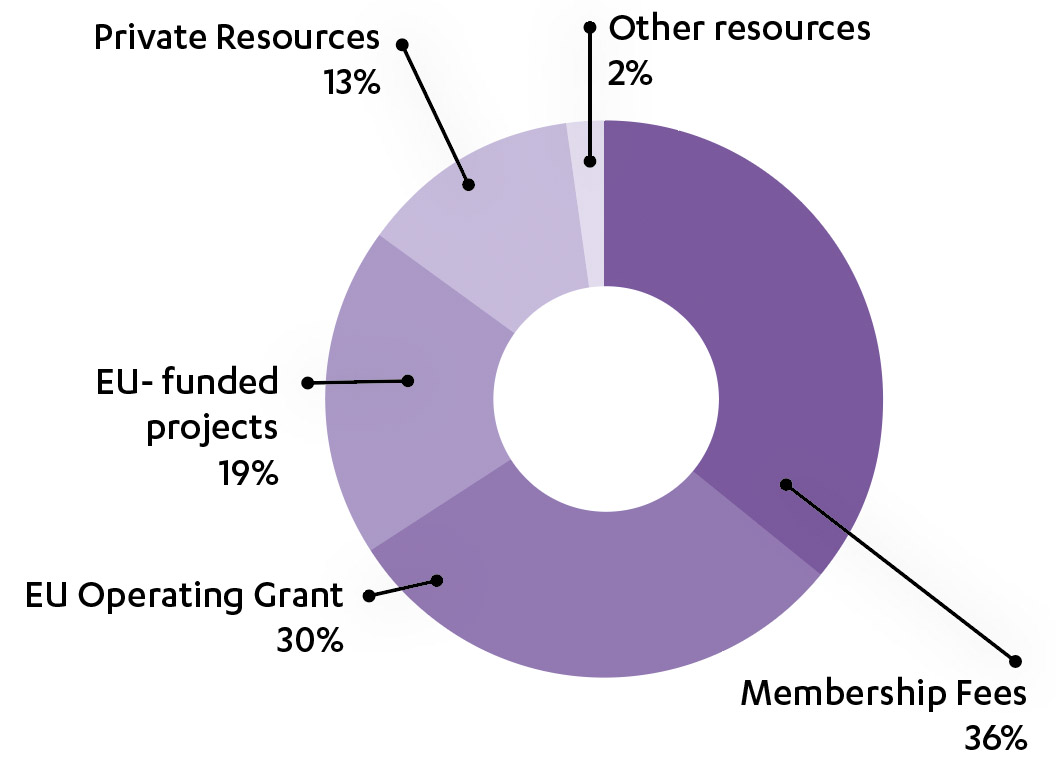
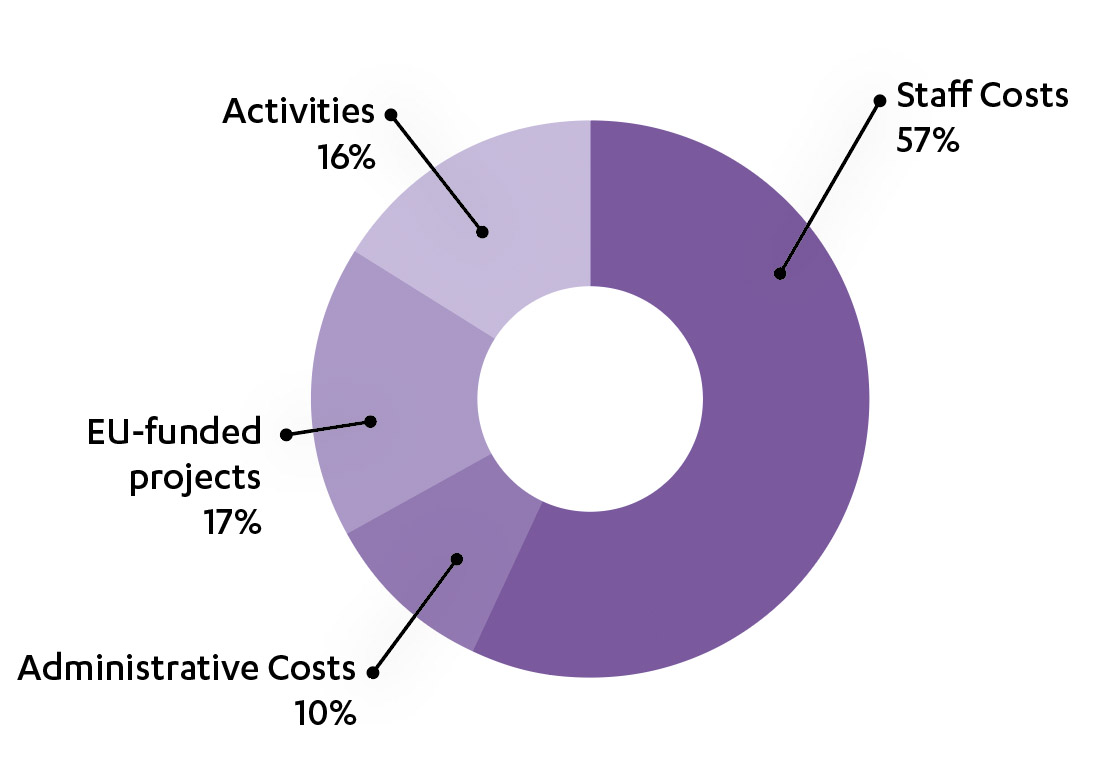
European Parliament & DG Justice and Consumers
DG Environment
DG Energy
DG CLIMA & LIFE Programme
EASME
Adessium Foundation
European Climate Foundation
Open Society Foundations
The European Environmental Health Initiative
The Media Democracy Fund
GIZ GmbH

Made by Exelmans Graphics